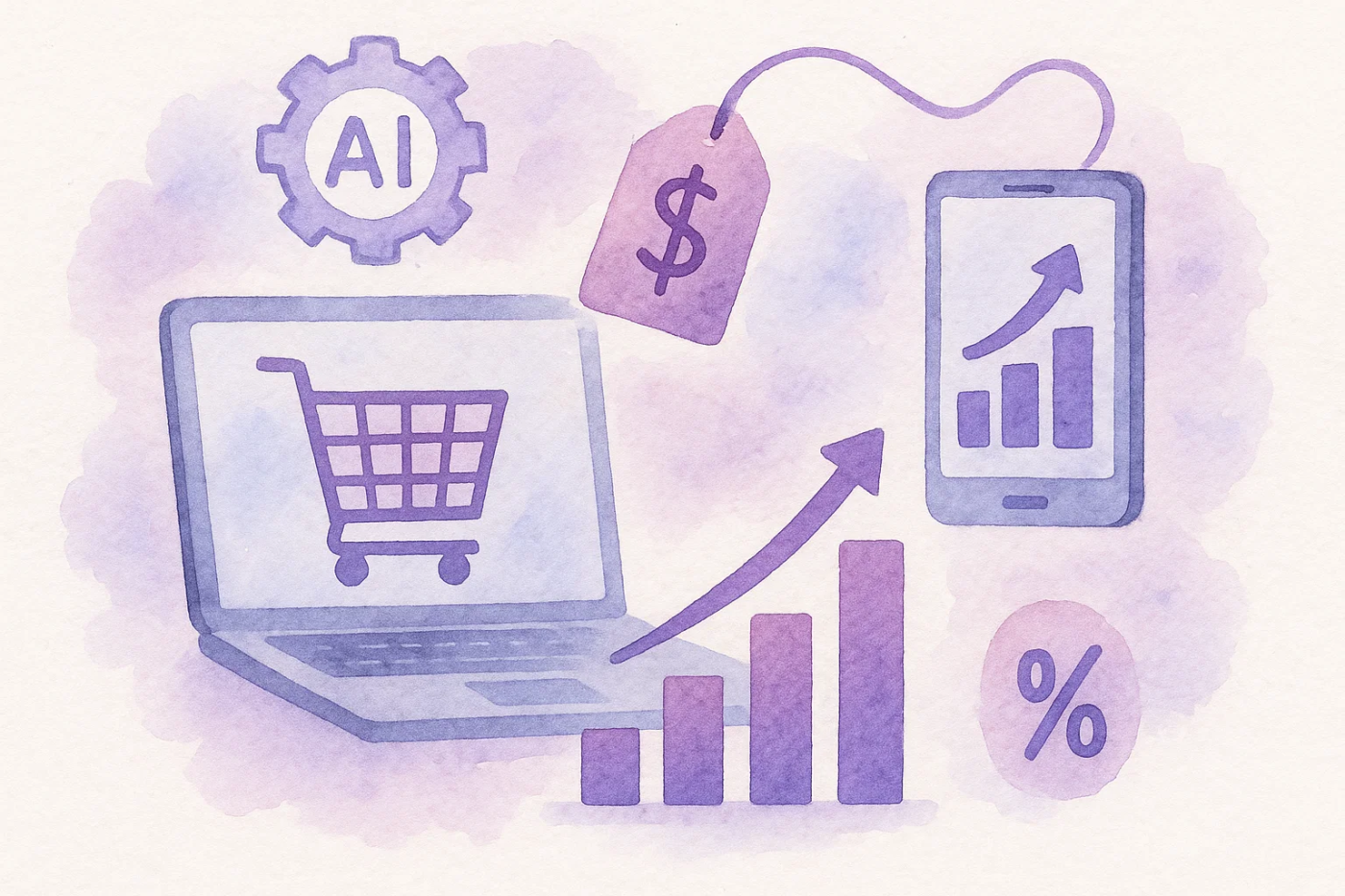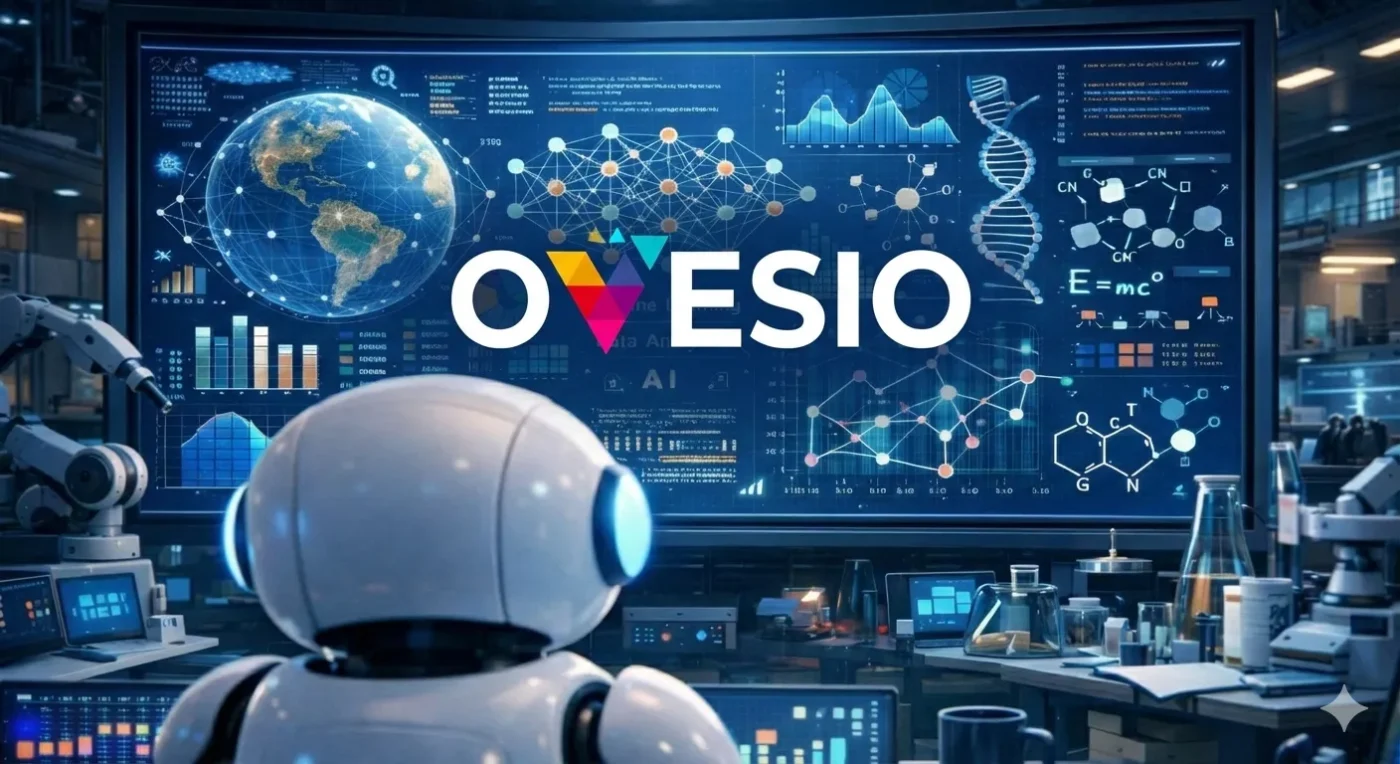How AI E-Commerce Tools Are Changing The Scaling Game Now

AI is now the engine of most E-Commerce Tools that assist businesses in scaling.
Artificial Intelligence isn’t a futuristic concept anymore, it’s the backbone of how successful e-commerce businesses scale today.
In a market that moves faster than your next-day delivery, AI is the tool that keeps your business not just afloat, but ahead.
From automating the mundane to delivering razor-sharp personalization and predictive insights, AI e-commerce tools are rewriting the rules of growth.
What used to take large teams, big budgets, and months of manual labor can now be achieved in real-time, with leaner teams, smarter systems, and scalable precision.
This isn’t about cutting corners, it’s about scaling smarter, not harder.
Automation That Supercharges Efficiency
In e-commerce, time isn’t just money, it’s momentum. And AI is giving brands that crucial edge by automating the heavy, boring stuff, so humans can focus on what actually moves the needle.
Repetitive Task Automation
Think order confirmations, product tagging, inventory updates, or responding to the same ten customer questions every hour.
AI handles these tasks flawlessly, tirelessly, and without error.
Teams once buried in admin work can now shift their focus to growth strategies, creative campaigns, and data-driven decision-making.
Smart Chatbots
Customers want answers now.
AI-powered chatbots deliver that, offering real-time responses, personalized assistance, and seamless escalation when needed.
These aren’t your clunky old bots; they’re conversational engines trained on your data, capable of boosting satisfaction while slashing response times.
Brands using AI chat find that they can scale customer service without scaling headcount.
Inventory & Fulfillment Automation
Gone are the days of manual stock tracking and last-minute reorders.
AI systems now predict inventory needs, trigger restocks before items run out, and optimize fulfillment routes, all in sync with real-time demand.
This means fewer costly stockouts, better delivery performance, and tighter supply chain control.
Stat to know: Companies adopting AI-driven automation report up to an 8% reduction in average operational costs—a leaner, meaner path to growth.
Personalization & Marketing at Scale
Forget one-size-fits-all.
In today’s hyper-competitive e-commerce world, personalization isn’t just a nice touch, it’s a performance driver.
AI enables brands to treat every customer like a VIP, and it’s showing up directly in the numbers.
AI Recommendations
Machine learning models dig deep into user behavior, clicks, carts, and conversions, to deliver product recommendations that feel eerily spot-on.
The result? Big revenue lifts.
Industry giants like Amazon and Sephora attribute up to 35% of their sales to AI-powered recommendation engines.
And now, these same technologies are accessible to brands of all sizes.
Dynamic Emails & On-Site Content
Today’s AI tools go beyond static campaigns.
They adapt email content and site experiences in real time, serving up product suggestions, offers, and layouts based on each shopper’s behavior.
It’s personalization at scale, with no manual labor required.
The outcome: stronger engagement, better retention, and more loyal customers.
AI-Powered Ads That Hit the Mark
AI doesn’t just place ads, it perfects them.
These systems analyze engagement patterns, A/B test at speed, and dynamically adjust campaigns to match shifting audience behavior.
This means smarter targeting, lower cost per click, and higher ROI, especially in crowded channels like Meta and Google Ads.
Real-world proof: Wolseley, a leading supplier, saw a 9.6% lift in conversion rates and a 25% increase in average order value after deploying AI-driven site search and personalized recommendations.
Smarter Decisions = Scalable Growth
AI isn’t just helping you move faster, it’s helping you move smarter.
The best scaling decisions are rooted in data, and AI is making that data actionable in ways human teams simply can’t match.
Predictive Analytics
AI algorithms analyze historical trends, real-time behavior, and even external market signals to forecast demand, spot seasonal patterns, and help you plan with confidence.
Stock the right products at the right time, and eliminate wasteful overordering or costly stockouts.
Dynamic Pricing Engines
These tools continuously scan competitor pricing, consumer behavior, and sales velocity to optimize your prices in real time.
Whether you want to win the buy box, protect your margins, or react to market shifts, AI ensures you’re never leaving money on the table, or scaring off customers with the wrong price tag.
Customer Insight Mining
AI dives into reviews, support tickets, surveys, and chat logs to surface what your customers really think.
This goes beyond star ratings, it uncovers patterns in sentiment, product pain points, and churn signals you can act on fast. The result?
Better products, happier customers, and more repeat purchases.
Real-world proof: Nike attributes a $500 million annual revenue boost to its AI-powered pricing strategies, smart recommendations, and AI-driven customer support systems. That’s not potential, that’s profit.
Conclusion: Scaling With Intelligence, Not Just Headcount
AI e-commerce tools are no longer a futuristic luxury, they’re a present-day necessity for brands that want to compete, grow, and lead.
By automating operations, personalizing experiences, and enhancing decision-making, AI levels the playing field between scrappy startups and global giants.
In a world where margins are tight, and attention spans are shorter, these tools deliver what matters: personalization, precision, and performance, at scale.
The bottom line? Scaling isn’t about adding more people, it’s about adding more intelligence.
FAQ: Big Questions About AI in E-Commerce
1. What are AI e-commerce tools?
AI e-commerce tools are software platforms that use artificial intelligence to automate, optimize, and personalize various aspects of online retail. Popular examples include:
- Dynamic Yield (personalized recommendations)
- Octane AI (conversational commerce)
- Bloomreach Discovery (AI-powered search and merchandising)
2. Are AI tools affordable for small businesses?
Yes—many AI platforms offer modular pricing, flexible plans, and integrations with common e-commerce platforms like Shopify and WooCommerce. Plus, the cost savings from automation often outweigh the initial investment.
3. How do AI recommendations actually work?
These systems use machine learning algorithms to analyze customer data, like browsing history, past purchases, and real-time behavior. They then serve up tailored product suggestions most likely to convert.
4. Can AI help with inventory and supply chain issues?
Absolutely. AI-driven inventory tools forecast demand, prevent overstock and stockouts, and optimize restock timing and delivery logistics—all based on real-time data and trends.
5. Which are the top AI tools in e-commerce today?
Here’s a quick list of standout solutions:
- Octane AI: Conversational chat and quiz funnels
- Kimonix: Smart product sorting and pricing
- Syte: Visual product discovery
- Optimizely: Predictive analytics and customer segmentation





